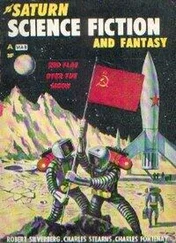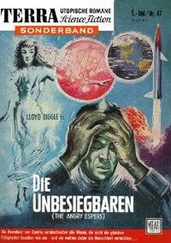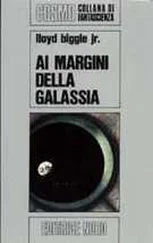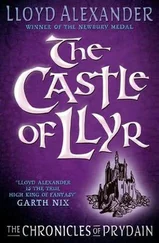Lloyd Biggle Jr. - Tunesmith
Здесь есть возможность читать онлайн «Lloyd Biggle Jr. - Tunesmith» весь текст электронной книги совершенно бесплатно (целиком полную версию без сокращений). В некоторых случаях можно слушать аудио, скачать через торрент в формате fb2 и присутствует краткое содержание. Город: Buffalo, NY, Год выпуска: 1957, Издательство: Quinn Publishing Company, Inc., Жанр: Фантастика и фэнтези, на английском языке. Описание произведения, (предисловие) а так же отзывы посетителей доступны на портале библиотеки ЛибКат.
- Название:Tunesmith
- Автор:
- Издательство:Quinn Publishing Company, Inc.
- Жанр:
- Год:1957
- Город:Buffalo, NY
- ISBN:нет данных
- Рейтинг книги:3 / 5. Голосов: 1
-
Избранное:Добавить в избранное
- Отзывы:
-
Ваша оценка:
- 60
- 1
- 2
- 3
- 4
- 5
Tunesmith: краткое содержание, описание и аннотация
Предлагаем к чтению аннотацию, описание, краткое содержание или предисловие (зависит от того, что написал сам автор книги «Tunesmith»). Если вы не нашли необходимую информацию о книге — напишите в комментариях, мы постараемся отыскать её.
Tunesmith — читать онлайн бесплатно полную книгу (весь текст) целиком
Ниже представлен текст книги, разбитый по страницам. Система сохранения места последней прочитанной страницы, позволяет с удобством читать онлайн бесплатно книгу «Tunesmith», без необходимости каждый раз заново искать на чём Вы остановились. Поставьте закладку, и сможете в любой момент перейти на страницу, на которой закончили чтение.
Интервал:
Закладка:
Tunesmith
by Lloyd Biggle, Jr.
Everyone calls it the Center. It has another name, a long one, that gets listed in government appropriations and has its derivation analyzed in encyclopedias, but no one uses it. From Bombay to Lima, from Spitsbergen to the mines of Antarctica, from the solitary outpost on Pluto to that on Mercury, it is—the Center. You can emerge from the rolling mists of the Amazon, or the cutting dry winds of the Sahara, or the lunar vacuum, elbow your way up to a bar, and begin, “When I was at the Center—” and every stranger within hearing will listen attentively.
It isn't possible to explain the Center, and it isn't necessary. From the babe in arms to the centenarian looking forward to retirement, everyone has been there, and plans to go again next year, and the year after that. It is the vacation land of the Solar System. It is square miles of undulating American Middle West farm land, transfigured by ingenious planning and relentless labor and incredible expense. It is a monumental summary of man's cultural heritage, and like a phoenix, it has emerged suddenly, inexplicably, at the end of the twenty-fourth century, from the corroded ashes of an appalling cultural decay.
The Center is colossal, spectacular and magnificent. It is inspiring, edifying and amazing. It is awesome, it is overpowering, it is—everything.
And though few of its visitors know about this, or care, it is also haunted. You are standing in the observation gallery of the towering Bach Monument. Off to the left, on the slope of a hill, you see the tense spectators who crowd the Grecian Theater for Euripides. Sunlight plays on their brightly-colored clothing. They watch eagerly, delighted to see in person what millions are watching on visiscope.
Beyond the theater, the tree-lined Frank Lloyd Wright Boulevard curves into the distance, past the Dante Monument and the Michelangelo Institute. The twin towers of a facsimile of the Rheims Cathedral rise above the horizon. Directly below, you see the curious landscaping of an eighteenth-century French jardin and, nearby, the Moliere Theater.
A hand clutches your sleeve, and you turn suddenly, irritably, and find yourself face to face with an old man.
The leathery face is scarred and wrinkled, the thin strands of hair glistening white. The hand on your arm is a gnarled claw. You stare, take in the slumping contortion of one crippled shoulder and the hideous scar of a missing ear, and back away in alarm.
The sunken eyes follow you. The hand extends in a sweeping gesture that embraces the far horizon, and you notice that the fingers are maimed or missing. The voice is a harsh cackle. “Like it?” he says, and eyes you expectantly.
Startled, you mutter, “Why, yes. Of course.”
He takes a step forward, and his eyes are eager, pleading. “I say, do you like it?”
In your perplexity you can do no more than nod as you turn away—but your nod brings a strange response. A strident laugh, an innocent, childish smile of pleasure, a triumphant shout. “I did it! I did it all!”
Or you stand in resplendent Plato Avenue, between the Wagnerian Theater, where the complete Der Ring des Nibelungen is performed daily, and the reconstruction of the sixteenth-century Globe Theatre, where Shakespearean drama is presented morning, afternoon and evening.
A hand paws at you. “Like it?”
If you respond with a torrent of ecstatic praise, the old man eyes you impatiently and only waits until you have finished to ask again, “I say, do you like it?”
But a smile and a nod is met with beaming pride, a gesture, a shout.
In the lobby of one of the thousand spacious hotels, in the waiting room of the remarkable library where a copy of any book you request is reproduced for you free of charge, in the eleventh balcony of Beethoven Hall, a ghost shuffles haltingly, clutches an arm, asks a question.
And shouts proudly, “I did it!”
Erlin Baque sensed her presence behind him, but he did not turn. Instead he leaned forward, his left hand tearing a rumbling bass figure from the multichord while his right hand fingered a solemn melody. With a lightning flip of his hand he touched a button, and the thin treble tones were suddenly fuller, more resonant, almost clarinetlike. (“But God, how preposterously unlike a clarinet!” he thought.)
“Must we go through all that again, Val?” he asked.
“The landlord was here this morning.”
He hesitated, touched a button, touched several buttons, and wove weird harmonies out of the booming tones of a brass choir. (But what a feeble, distorted brass choir!)
“How long does he give us this time?”
“Two days. And the food synthesizer's broken down again.”
“Good. Run down and buy some fresh meat.”
“With what?”
Baque slammed his fists down and shouted above the shattering dissonance. “I will not rent a harmonizer. I will not turn my arranging over to hacks. If a Com goes out with my name on it, it's going to be composed. It may be idiotic, and it may be sickening, but it's going to be done right. It isn't much, God knows, but it's all I have left.”
He turned slowly and glared at her, this pale, drooping, worn-out woman who'd been his wife for twenty-five years. Then he looked away, telling himself stubbornly that he was no more to be blamed than she. When sponsors paid the same rates for good Coms that they paid for hackwork…
“Is Hulsey coming today?” she asked.
“He told me he was coming.”
“If we could get some money for the landlord—”
“And the food synthesizer. And a new visiscope. And new clothes. There's a limit to what can be done with one Com.”
He heard her move away, heard the door open, and waited. It did not close.
“Walter-Walter called,” she said. “You're the featured tunesmith on today's She Case. ”
“So? There's no money in that.”
“I thought you wouldn't want to watch, so I told Mrs. Rennik I'd watch with her.”
“Sure. Go ahead. Have fun.” The door closed.
Baque got to his feet and stood looking down at his chaos-strewn worktable. Music paper, Com-lyric releases, pencils, sketches, half-finished manuscripts were cluttered together in untidy heaps. Baque cleared a corner for himself and sat down wearily, stretching his long legs out under the table.
“Damn Hulsey,” he muttered. “Damn sponsors. Damn visiscope. Damn Coms.” Compose something, he told himself. You're not a hack, like the other tunesmiths. You don't punch out silly tunes on a harmonizer's keyboard and let a machine complete them for you. You're a musician, not a melody monger. Write some music. Write a—a sonata, for multichord. Take the time now, and compose something.
His eyes fell on the first lines of a Com-lyric release. “If your flyer jerks and clowns, if it has its ups and downs—”
“Damn landlord,” he muttered, reaching for a pencil.
The tiny wall clock tinkled the hour, and Baque leaned over to turn on the visiscope. A cherub-faced master of ceremonies smiled out at him ingratiatingly. “Walter-Walter again, ladies and gentlemen. It's Com time on today's Show Case. Thirty minutes of Commercials by one of today's most talented tunesmiths. Our Com spotlight is on—”
A noisy brass fanfare rang out, the tainted brass tones of a multichord. “Erlin Baque!”
The multichord swung into an odd, dipsey melody Baque had done five years before, for Tamper Cheese, and a scattering of applause sounded in the background. A nasal soprano voice mouthed the words, and Baque groaned unhappily. “We age our cheese, and age it, age it, age it, age it, age it the old-fashioned way…”
Walter-Walter cavorted about the stage, moving in time with the melody, darting down into the audience to kiss some sedate housewife-on-a-holiday, and beaming at the howls of laughter.
Читать дальшеИнтервал:
Закладка:
Похожие книги на «Tunesmith»
Представляем Вашему вниманию похожие книги на «Tunesmith» списком для выбора. Мы отобрали схожую по названию и смыслу литературу в надежде предоставить читателям больше вариантов отыскать новые, интересные, ещё непрочитанные произведения.
Обсуждение, отзывы о книге «Tunesmith» и просто собственные мнения читателей. Оставьте ваши комментарии, напишите, что Вы думаете о произведении, его смысле или главных героях. Укажите что конкретно понравилось, а что нет, и почему Вы так считаете.












